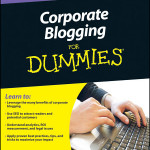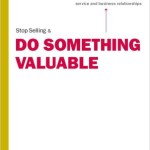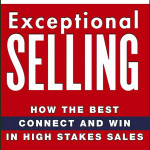Tips on Business Writing for Bloggers – Part B

This week, I’m sharing Susan Adams’ “Ten Tips on Business Writing”, offered in Forbes Magazine, with my Say It For You readers (again, I’ve added my own thoughts in italics):
Start by asking yourself what you want the person to do as a result of reading this post.
Each business blog post should impart one new idea or call for a single action. Focused on one thing, your post has greater impact, since people are bombarded with many messages each day. Respecting readers’ time produces better results for your business.
Avoid using big $10 words because you want to sound intelligent.
Unfortunately, as a blog content writing trainer, I see a lot of the kind of overused buzzwords hiring expert Carina Chivulescu sees on resumes, such as “best of breed”, or “results-driven”. “Employers want to see words and phrases that clearly and succinctly define your skills, experience, and accomplishments,” Chivulescu explains. That’s precisely the type of words and phrases your business blog readers need to find when they visit your site.
(The last three of Susan Adam’s tips have to do with English grammar)
Choose pronouns wisely. “Send the memo to Bob and myself’” is incorrect. Think how you would word the sentence if you removed mention of other people. In fact, as “Grammar Girl” Mignon Fogarty points out, the pronouns a writer chooses, she explains, set the point of view and the tone of a passage.
Know when to use “that” and “which”. “Which” introduces extra information and it isn’t essential to the first clause. In a sentence such as “Computers are the only products that we sell,” the clause “that we sell” is essential to the meaning of the sentence, so the correct word is “that”.
Affect is a verb meaning “to influence.” “Effect” is a noun that means “result.”
What’s the big deal? Grammar mistakes in content writing for business call attention away from the kind of impression we intend to make on behalf of our businesses or professional practices.
Would your latest blog post pass the Ten-Tip test?

 for guidance on best practices. Many of the authors’ “tips and tricks to maximize your impact” will never go out of style. Here are just three examples:
for guidance on best practices. Many of the authors’ “tips and tricks to maximize your impact” will never go out of style. Here are just three examples: Understanding what types of searchers your business is likely to attract can be very important in keyword selection, Matt Bailey explains in
Understanding what types of searchers your business is likely to attract can be very important in keyword selection, Matt Bailey explains in  together of articles from many different only marketing experts.
together of articles from many different only marketing experts. “Tell and sell tradition marketing is dead,” according to
“Tell and sell tradition marketing is dead,” according to  push customers, nor do they have to protect themselves from us.”
push customers, nor do they have to protect themselves from us.”
Follow us online!